Plumbing is a complex, yet crucial industry. From repairing leaks to analyzing how well your house’s fixtures work, plumbers offer a variety of services that help us all live comfortably.

While a basic visual inspection of accessible pipes and fixtures is something most homeowners can do themselves, a professional inspector can find hidden issues with specialized tools and expertise. Strong communication skills are also critical in this skilled trade. Contact Plumber Rosenberg TX for professional help.
We’ve all seen plumbers at work and we’re aware of the important job they do, from fixing leaky pipes to laying foundational pipe for new infrastructure. The work is hands-on, physical and requires a certain level of stamina, but it can be satisfying to help people when they’re in need. It’s also a great career for those who enjoy problem-solving, as plumbers frequently encounter issues that require creative thinking.
Getting started in the plumbing profession typically requires a high school diploma or GED certificate, plus a vocational training program at a trade school or community college that includes both classroom education and hands-on skills training. Aspiring plumbers can also enter a formal apprenticeship that lasts a few years and provides on-the-job training while earning a paycheck. Plumbers may also be able to join a union, which can provide additional training opportunities and perks like health insurance.
Once a plumber completes their initial training and becomes licensed, they can choose to specialize in one of several areas. Residential plumbers, for example, install and repair water systems for homes and apartment buildings, including piping for sinks, faucets, showers, toilets and more. Other plumbers work in commercial or industrial settings, focusing on larger-scale plumbing equipment and systems that serve multiple occupants. Pipe layers, on the other hand, prepare and grade the ground for the laying of large-scale pipe (e.g. sewer, natural gas or oil).
Regardless of specialty, all plumbers must have a solid understanding of building codes and regulations. They also need to be proficient in a variety of tools and other technical equipment, such as wrenches, pipe cutters, soldering irons and power saws. They’ll also need to be comfortable working in tight spaces and navigating narrow, winding passageways. Finally, plumbers must have a strong desire to solve problems and deliver quality work. Whether they’re helping customers deal with a burst pipe or assisting an architect with the layout of a new hospital, plumbers must be dedicated to upholding the highest standards of workmanship and professionalism. This dedication pays off, as a plumber’s work can directly impact people’s daily lives and well-being.
Apprenticeships
Taking on an apprenticeship in the plumbing trade is an excellent way to learn the craft while earning a living. Many apprenticeship programs last between 4-5 years and offer both classroom and on-the-job training. Most are run by unions and trade associations, but you can also find them through vocational colleges and private companies. They provide a pathway for individuals to earn a skill and become a licensed journey-level worker without incurring student loan debt.
An apprentice plumber works under the supervision of a master plumber to help with installations and repairs. As a result, an apprentice may receive pay that increases over time as their skills and knowledge develop. The goal of a plumber is to eventually become a journeyman plumber, and this requires extensive on-the-job experience.
The Plumber Apprenticeship Program at Eastwick College provides an opportunity for students to enter this highly skilled profession by completing a comprehensive combination of coursework and hands-on, on-the-job training. The program is designed to prepare the student for a career as a licensed plumber in both residential and commercial construction.
In this course, the apprentice will select and complete an applied plumbing project in collaboration with their instructor. The project will apply the theory, work experience and application of plumbing code principles addressed in previous courses. This will support a plumber apprentice in meeting the requirements for passing the Wisconsin plumbing license examination.
This course focuses on the basic skills of installing water, waste disposal and drainage systems in homes and commercial industrial buildings. The curriculum includes the basic tools, safety, and math needed for the trade. In addition, the apprentice will be introduced to a variety of green products and applications.
This course is the second of five required to meet the requirements for the plumber apprentice program. The student will continue to expand their knowledge of plumbing and heating installation techniques and services while focusing on the design, installation, and maintenance of various plumbing and heating systems and components. The student will also become familiar with the different types of plumbing codes.
Experience
Plumbing is a career that offers excellent job security, good pay, and the satisfaction of knowing you’ve made a difference in people’s lives. It is also a hands-on occupation that requires physical strength and stamina. However, it’s important to establish whether this type of work is a good fit for you before you start training. There are many things to consider, from the types of skills you’ll need to the types of work you’ll be doing.
Plumbers are responsible for the installation, repair and maintenance of a wide range of pipes and fixtures in residential, commercial and industrial settings. This includes water, waste removal and heating systems. Common tasks include repairing or replacing sinks and toilets, unclogging drains, and inspecting and testing pipes for leaks or blockages. They also install and repair appliances, such as dishwashers and washing machines.
A plumber may choose to specialize in certain areas of plumbing, such as gas fittings or sewage treatment. They can also further develop their skills by taking additional training courses offered by trade schools or professional organizations. Some plumbers choose to pursue certification, which can lead to higher pay grades and job opportunities.
Many plumbers also find employment in residential and commercial construction, performing installations or repairs for new building projects. They can also opt to focus on a specific area of plumbing, such as kitchen and bathroom renovations.
In addition to technical expertise and training, plumbers must have strong communication skills to interact with customers. This includes listening to complaints, providing advice and recommendations, and addressing any concerns. They must also be able to work well under pressure.
In addition to their daily responsibilities, plumbers must take regular breaks to rest and relax. This helps them maintain their physical health and ensure they have the energy to perform their jobs effectively. They may also be required to complete overtime hours when necessary. Plumbers are also expected to follow all safety procedures and guidelines when working on a project. If they fail to do so, they can be subjected to fines and other penalties.
Skills
A plumber needs a wide range of skills. These include physical strength and a high tolerance for messy situations, such as draining clogs or flushing out pipes. They must also have the ability to solve problems on the fly and work in tight spaces. Plumbers also need technical abilities, such as soldering, pipe cutting and fitting, and water flow testing. Additionally, they must be able to read and interpret blueprints.
Plumbers often need to work with a team, so good communication and customer service skills are important. They should also be able to plan and schedule appointments effectively. If they do not, they may miss out on earning potential business. In addition, a plumber should be able to keep their tools organized and work safely.
In some cases, plumbers may need to troubleshoot problems over the phone or via email. They should be able to explain these issues clearly and concisely so that non-plumbers can understand them. This will help prevent miscommunication and errors, which could lead to costly repairs or replacements.
While some plumbers focus on residential or commercial plumbing, others specialize in industrial plumbing. These plumbers install and repair large-scale piping systems in factories, power plants and other industrial settings. They need to know how to handle a variety of specialized equipment, including high-pressure boilers and cooling systems.
Whatever their specialization, all plumbers must be comfortable working with tools and a variety of materials. They also need to be able to work with their hands, read and interpret blueprints and use basic computer programs for inventory, billing and cost estimation. They may also need to submit reports or perform other job duties, so having a strong attention to detail is important. Additionally, many plumbers work with dangerous chemicals and must have a thorough understanding of safety protocols. Finally, plumbers need to be comfortable with math and possess good problem-solving skills.

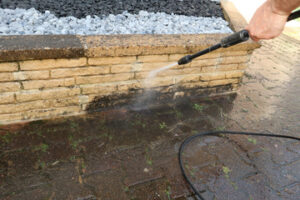
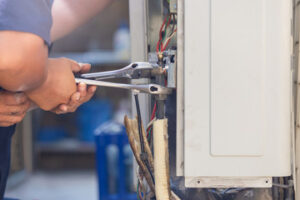

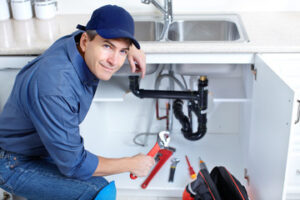
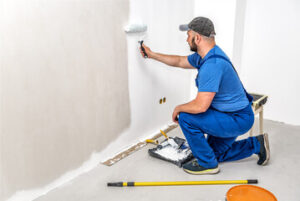
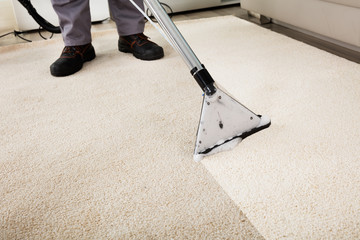
 Carpet is often seen as a trap for allergens such as dust mites, pet dander, and mold spores. However, it has been shown that carpet functions as a healthy filter, keeping airborne allergies to a minimum if properly maintained. The key is to vacuum regularly and have it professionally cleaned regularly.
Carpet is often seen as a trap for allergens such as dust mites, pet dander, and mold spores. However, it has been shown that carpet functions as a healthy filter, keeping airborne allergies to a minimum if properly maintained. The key is to vacuum regularly and have it professionally cleaned regularly.